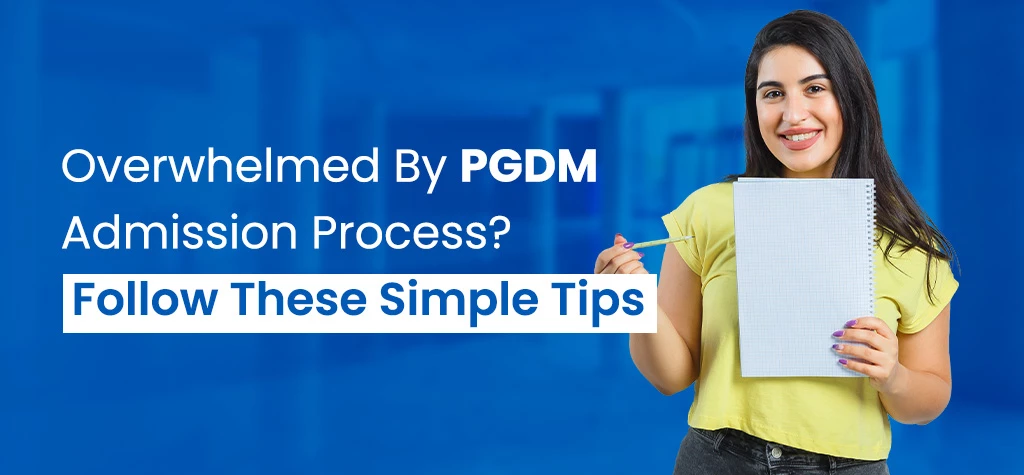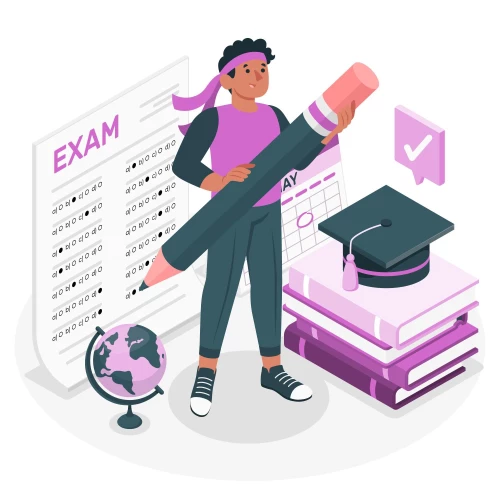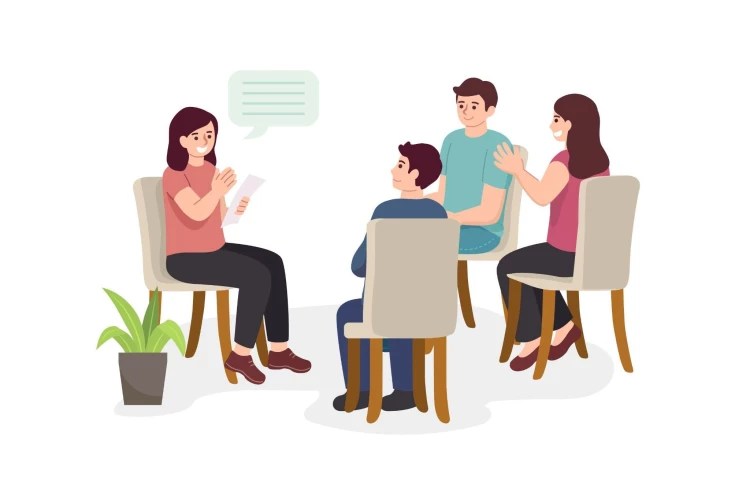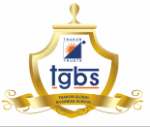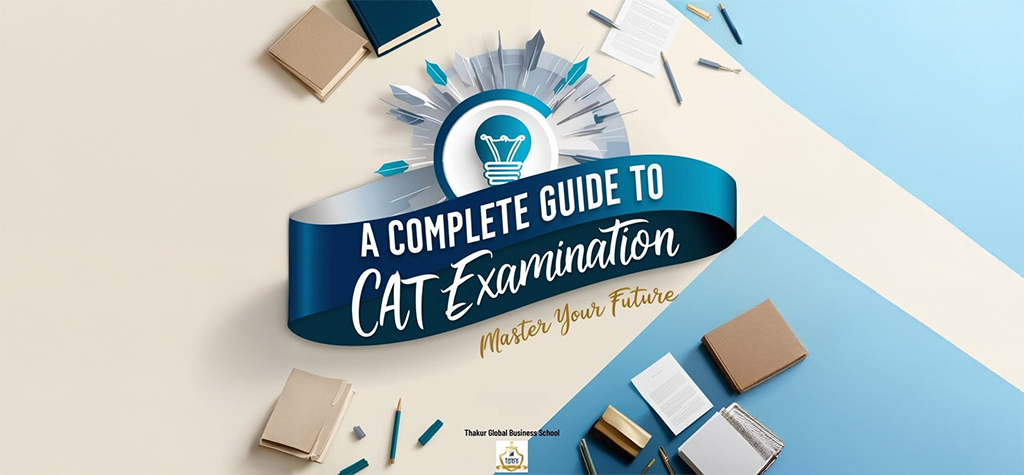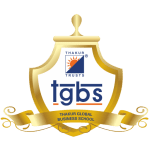Before you enter the gates of PGDM, you will have to go through the gatekeepers. The three gatekeepers that guard the doors of PGDM admission are entrance exams, group discussions, and personal interviews. Clearing them gives you access to enter the gate and pursue your journey in the PGDM specialization of your choice.
In this blog, we will provide you with some expert tips and guidance on how you can improve your chances of getting admission. We will offer expert advice on how to effortlessly navigate your group discussions and personal interviews.
Let’s get started.
Table of Content
- 5 Valuable Tips to Clear the Entrance Exam
- 5 Valuable Tips to Clear Group Discussion
- 5 Valuable Tips to Clear Personal Interviews
- Conclusion
5 Valuable Tips to Clear the Entrance Exam

For your PGDM admission, you need to clear one of the following entrance exams:
- CAT
- CET
- MAT
- XAT
- CMAT
- GMAT
A PGDM entrance exam has the highest weightage when it comes to your admission process. It carries 35% of total weightage; meaning, you can’t take your entrance exams lightly. Follow these tips to clear your entrance exams with flying colors:
- Understanding the Examination Pattern: Become aware of the structure, topics, and course outline of the entrance exam you intend to take. Have information about the format and time span of the entrance exam.
- Make a Study Schedule: Create a well-organized study schedule that allows enough time for every exam section. Set realistic deadlines and goals to guarantee thorough coverage of the syllabus.
- Emphasis on Fundamentals: Become more proficient in the areas of logical reasoning, data interpretation, quantitative aptitude, and general knowledge. Prioritise laying a solid foundation to properly understand more complex topics.
- Practice Frequently: To increase your accuracy and speed, practice answering sample papers, question papers from prior years, and mock exams. This will assist you in acclimating to the format of the exam and in efficiently allocating your time when taking it.
- Seek Professional Guidance: To obtain specialized advice and individualized study materials, think about enrolling in online courses or coaching sessions. You can also take advice from your friends or individuals who have appeared in these examinations previously.
5 Valuable Tips to Clear Group Discussions

Once you have cleared the first gatekeeper, your next opponent is group discussion (GD). Group discussions are important for sharing diverse perspectives and ideas, fostering collaboration, and reaching consensus on complex issues. They allow individuals to learn from one another, challenge assumptions, and develop critical thinking skills.
Tips for mastering group discussions:
1. Research General Group Discussion Topics
There is little to no chance that you will get the topic in advance, yet you can try to anticipate the topics. Look for common topics to incorporate into a group discussion at the institute level. For example, is AI replacing human workers? OR should remote learning become the new normal? can be good topics, taking into consideration the world’s current situation. Remember, the panel won’t be judging your knowledge; rather, their focus will be on how you present your answers.
2. Start the Discussion Only When Confident
Now, starting first can reflect confidence, which is true, but the insight you share must be valuable. For example, you can start the discussion if you know an amazing fact about the topic or if you have a nice story that can deliver your point. If you are not confident, it is better to wait and let other members of the group start.
3. Respect the Opinion of Other Group Members
Every year we conduct group discussions, and one huge problem that we notice year in and year out is the lack of respect some individuals share for other group members. The chance of selecting these individuals is pretty slim. If you disagree, you can use quotes like:
- I beg to differ…
- I respect your opinion, but…
- I value your opinion, but…
These quotes reflect your strong communication skills as well as show the panel that you respect others’ opinions.
4. Listen Carefully
The art of listening is one of the most important and difficult skills to master. The panelists will constantly analyze whether you are listening to others or not. To show that you are attentive, you can acknowledge someone’s opinion, nod your head, or expand on someone’s insight.
5. Sit Properly and Dress Formally
While dressing formally is like an unsaid rule, many candidates show up wearing casual outfits. It leaves a terrible impression. During the group discussion, be calm and sit properly. Don’t move your body too much or constantly try to change your posture.
Following these steps will definitely leave an amazing impression on the panelists and showcase your professionalism. Remember, non-verbal communication is just as important as verbal communication in a group discussion setting.
5 Valuable Tips to Clear a Personal Interview
Once you clear the second gatekeeper, you face the final and strongest gatekeeper: a personal interview. Interviews are always nerve-wracking, especially when your dream college is on the line. Here are a few tips that can help you clear not just institute-level interviews but also job interviews:
1. Research the College
Find out about the academic offerings, extracurricular activities, campus culture, mission, and values of the PGDM offering colleges. Customize your answers to highlight your qualifications for the college and how you can contribute towards the goal and mission of the institute.
2. Examine the Submitted Materials for your Application
Prepare a brief explanation of your application materials, which should include your volunteer work, extracurricular activities, academic records, and personal interests. Consider your aims, desires, and aspirations.
3. Practice Frequently Asked Questions
Prepare your answers to frequently asked interview questions. Some of the most common questions include:
- What makes you wish to enroll in this particular college?
- What academic objectives and interests do you have?
- Could you describe a struggle you overcame?
- What will you be able to offer our campus community?
- What are your advantages and disadvantages?
4. Develop Effective Communication Skills
Speak with clarity and assurance. As you listen carefully to the interviewer’s questions, give careful thought to your answers. You can take a few seconds before answering. Make sure you keep eye contact and listen intently. Best business schools will always prefer students who have a good grasp of their communication skills.
5. Be Sure to Ask Questions
You must prepare a few questions that you can ask the interviewer. Some common questions include:
- How accessible are professors after class?
- Which are some of the best organizations that visit this institution for recruitment?
- Are there any programs or workshops other than the PGDM curriculum that can help students?
Prof. Darshana Pednekar, one of our most respected and loved professors says “An interview may not make or break your admission. You may still get selected because of your marks but it pushes students out of their comfort zones. An interview is also a perfect platform for a candidate to show what their marks and grades can’t show.”
Conclusion
As you embark on the journey toward PGDM admission, it’s crucial to recognize and navigate the gatekeepers—entrance exams, group discussions, and personal interviews—with diligence and strategic preparation. By implementing the expert tips provided in this blog, you can improve your chances of success and confidently pursue your aspirations in the PGDM program of your choice.
If you are interested in pursuing a course in PGDM, you must definitely check out Thakur Global Business School. We are considered one of the Best PGDM Colleges in Mumbai because of our annually updated curriculum and amazing campus and facilities. We also regularly conduct workshops and guest lectures that help students gain knowledge beyond the textbooks and curriculum. Our specializations include PGDM in Finance, Marketing, HR, and Operations. Visit our website to learn more about our eligibility criteria, curriculum, faculty members, fee structure, and hostel facilities (for both boys and girls).



